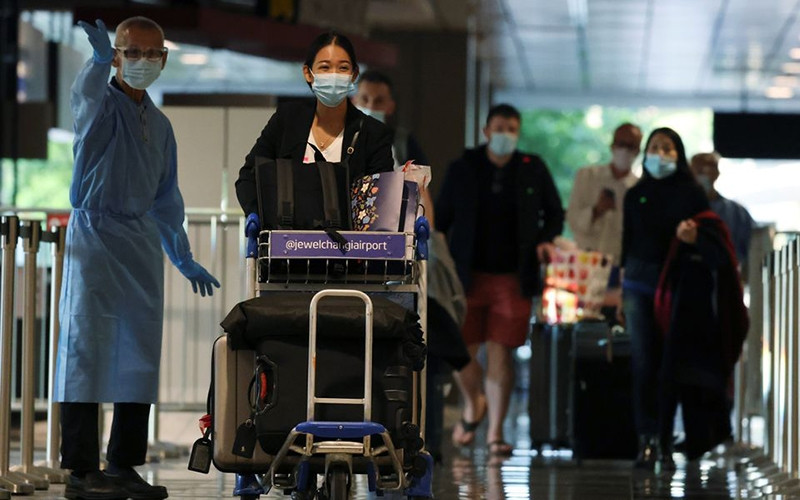As the pandemic has been gradually pushed back, the tourism industry in many countries is rebounding.
In the Republic of Korea (RoK), as travel restrictions are gradually lifted, many people are rushing to book tours abroad. On RoK’s social networks, the phrase “compensatory tourism” post-COVID-19 is very popular. This is the trend of travelling abroad to make up for a long time at home because of disease prevention measures.
The wave of tourism began to explode in the RoK in late March when the country lifted mandatory pandemic control measures such as a seven-day quarantine for fully vaccinated foreign visitors. From April 1, the RoK decided to relax social distancing measures to prevent the COVID-19 pandemic for two weeks.
In the UK, the rate of people booking international tours also increased sharply as they completely lifted travel restrictions from mid-March, after more than two years affected by the pandemic. Figures from the Association of British Travel Agents show that 57 percent of the British have booked a holiday abroad within the next 12 months, a sharp rise from 44 percent in October 2021. The ratio is close to pre-pandemic levels, reflecting UK consumers growing confidence as restrictions are lifted.
The strong recovery of the smokeless industry is also seen in Ireland as Ireland's Central Statistics Office has just announced that 787,300 foreign visitors arrived in Ireland in February 2022, up more than 34 percent compared to the previous month and up 1,300 percent compared to February 2021.
Mexico has also become a “bright spot” in the global tourism picture. According to the National Institute of Statistics and Geography of Mexico, revenue from international tourists reached 1.99 billion USD in January 2022, doubling the figure of 934 million USD earned in the same period last year. Official figures show that Mexico welcomed more than 2.6 million international visitors in the first month of 2022, 37.5 percent higher than the same period in 2021.
Supporting tourism growth is becoming a need-to-do thing that many countries are focusing on.
In the UK, the government has completely lifted travel restrictions after two years of pandemic prevention, making immigration easier and more affordable. Now, vaccinated or unvaccinated passengers do not need to take any tests upon arriving in the UK or fill out a passenger information declaration form.
Egypt is also opening doors to more international visitors. On April 1, the Egyptian Ministry of Tourism and Antiquities announced the addition of 78 countries to the electronic visa portal for tourists, thereby expanding the list to more than 180 countries that are eligible for online visa issuance to the country.
Meanwhile, Southeast Asian countries such as the Philippines and Vietnam are also gradually opening their borders and creating favourable conditions to welcome international tourists.
Under the new rules, tourists who have had enough vaccinations from visa-exempt countries will be allowed to enter the Philippines. The government also further eased the pandemic prevention measures in March, allowing all tourists who have received the full dose of vaccines to come into the country. The Philippines has welcomed more than 100,000 foreign tourists since the Southeast Asian nation opened its borders in February.
From April 1, Singapore and Malaysia have completely reopened border gates for all travellers who have been vaccinated against COVID-19 after two years of closure.
Thailand also announced the removal of the requirement of having a certificate of negative RT-PCR test results for travellers entering the country under the “Test & Go”, “sandbox” and other quarantine programmes from April 1.
The tourism industry has now passed this tragedy thanks to the countries’ efforts to fight the pandemic and open their borders, thereby creating more jobs and ensuring incomes for workers. The increasing number of international visitors will contribute to the revival of the smokeless industry and this is also an important driving force to promote the recovery of the world economy, which is threatened by insecurity and rising oil prices.
















